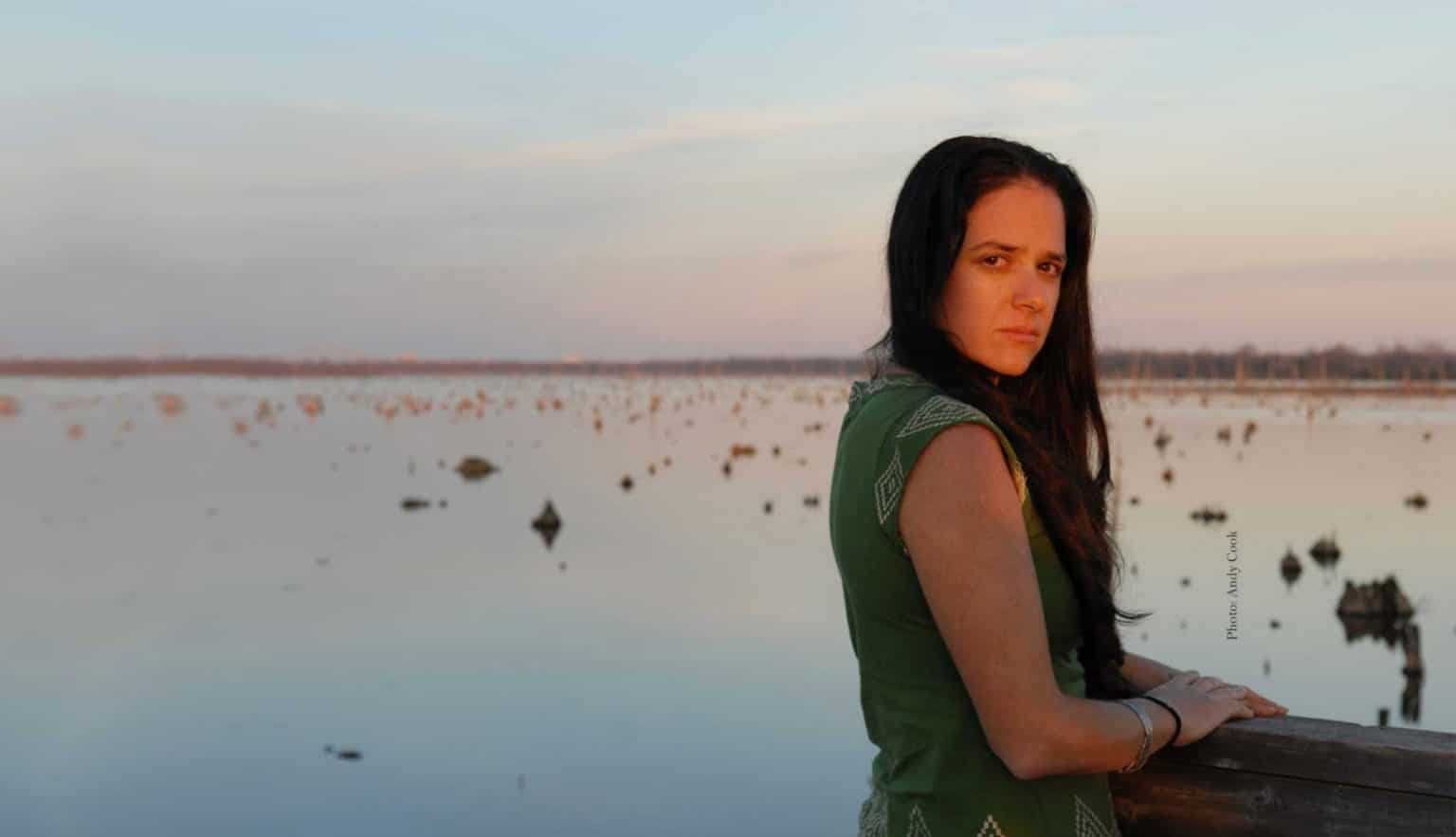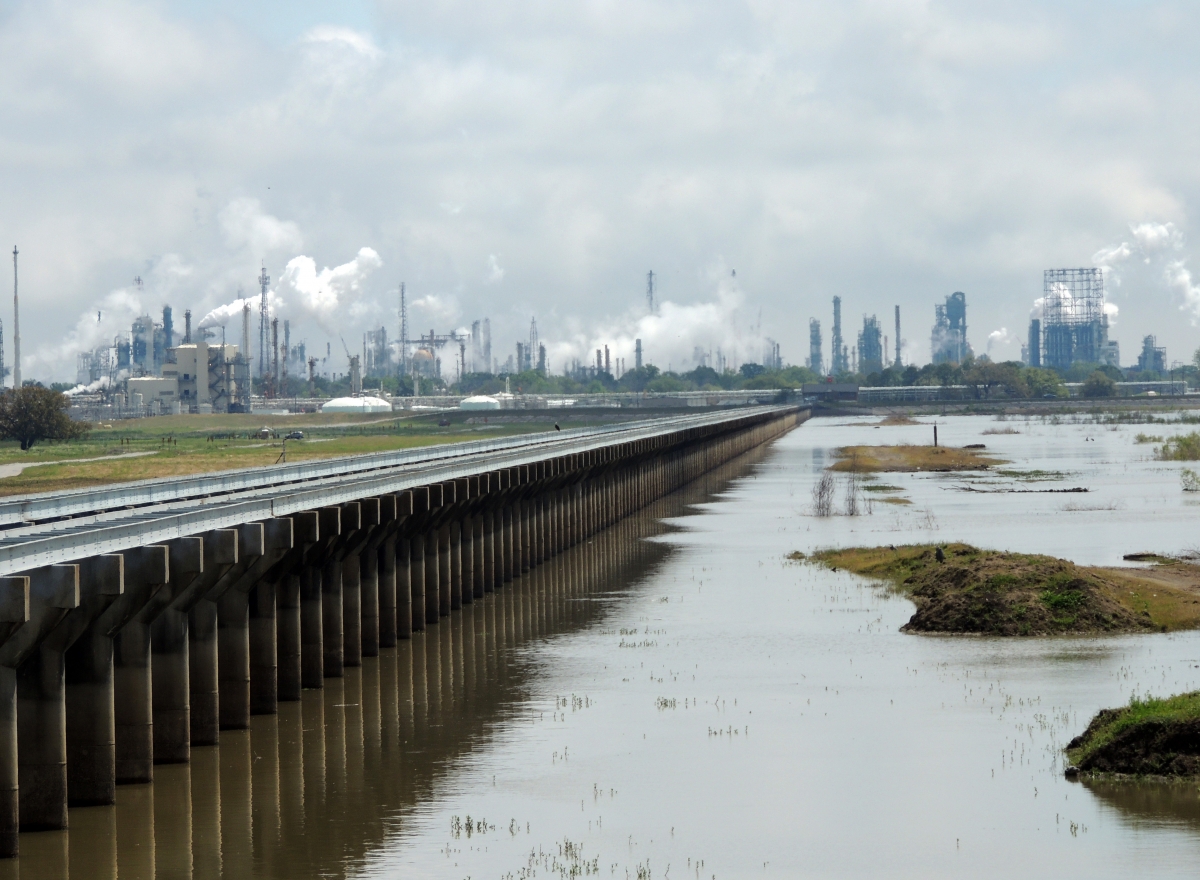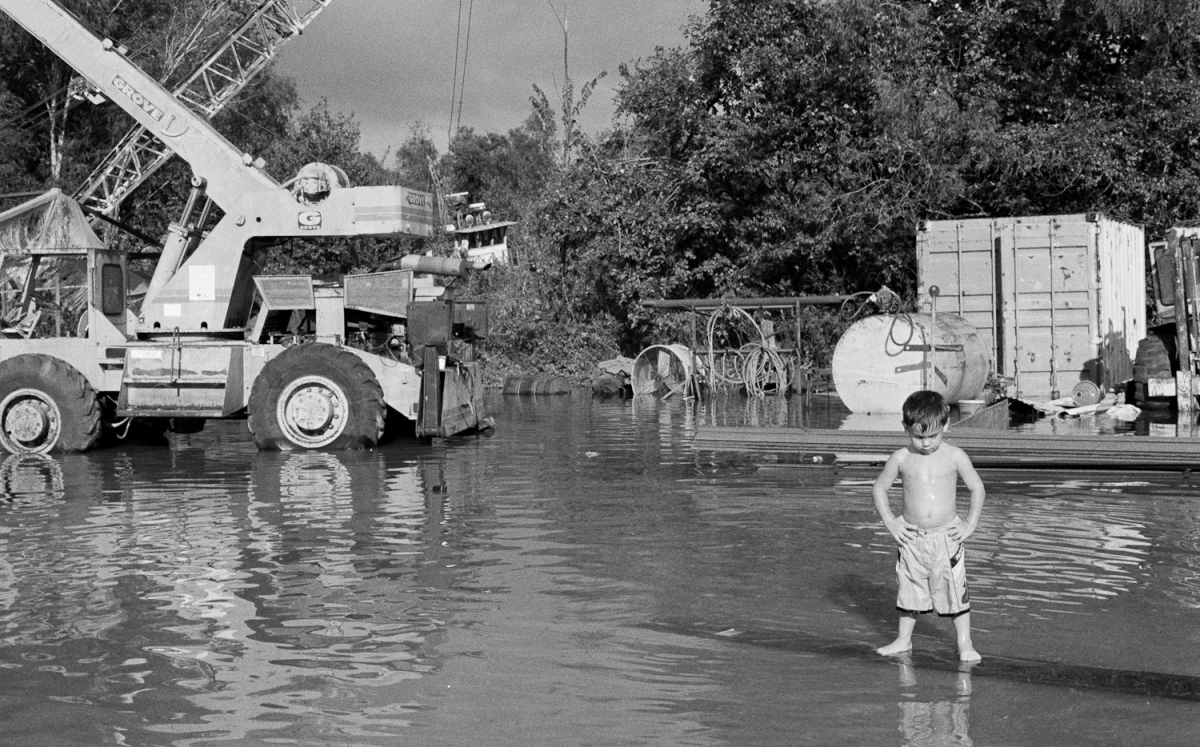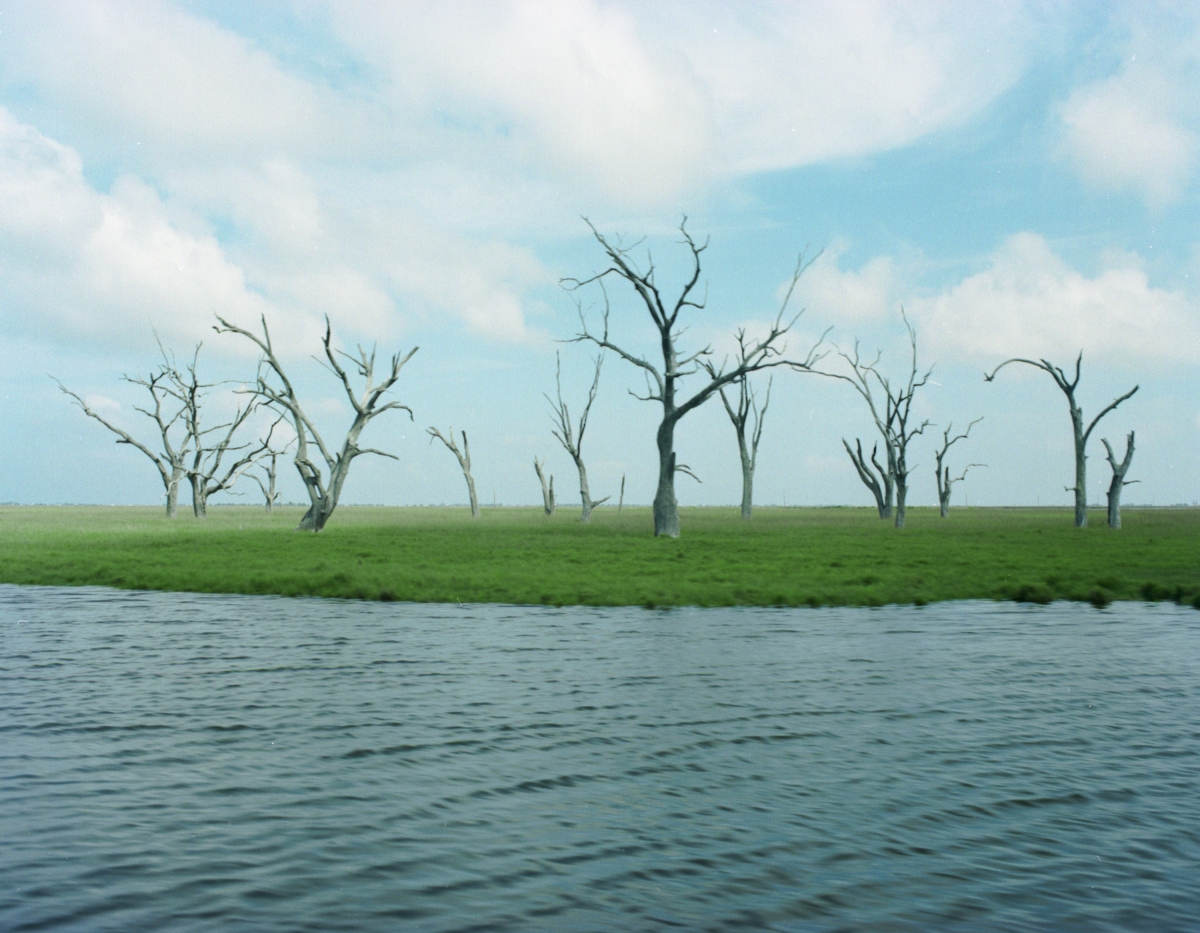“It is time that Shell be held accountable for the damages it has done on our communities and environment,” says Monique Verdin, an indigenous resident of the Louisiana coast and member-elect of the United Houma Nation Council.
Verdin has travelled to the Netherlands to speak out on behalf of the coastal community against Shell’s offshore drilling at the oil giant’s annual general meeting (AGM) today.
The AGM comes less than two weeks after Shell spilled more than 88,000 gallons of oil from a group of four underwater oil wells located some 97 miles south of Port Fourchon in Louisiana and creating a 13 mile-wide slick on the water’s surface.
Cleanup finished last week, and both Shell and the U.S. Coast Guard state that no environmental damage has been reported. However many, including Verdin, question whether the size and potential impact of the spill are being downplayed.
With support from the Indigenous Environmental Network and the UK Tarsands Network, Verdin will call on Shell’s board and investors to put an end to new offshore leases in the Gulf of Mexico.
“Shell’s most recent spill of [almost] 90,000 gallons of oil in the Gulf of Mexico makes me think of all the spills that happen in the Gulf, and in other parts of the ocean around the world, that go unreported and/or unnoticed,” Verdin tells DeSmog UK.
The Gulf “has been the sacrifice zone for dirty energy extraction and production for over a century. It is time that Shell be held accountable for the damages it has done on our communities and environment, and time for them to discontinue any new leasing of deepwater territories in the Gulf of Mexico, and to put an ultimate end to unsustainable and dangerous fossil fuel extraction in our oceans.”
Monique Verdin, a photographer and filmmaker, will be exhibiting her photos outside Shell’s AGM on Tuesday 24 May. Photo by Monique Verdin
The Gulf region is still reeling from the impacts of the BP Deepwater Horizon Disaster six years ago.
Sea life in the area continues to suffer from abnormal growths and heart defects linked to the lingering oil and dispersants that have settled on the bottom of the Gulf, and tar mats and tar balls continue to be a common sight on beaches in the region.
And while Shell’s recent oil spill may not be comparable in scale to the BP disaster, Shell remains one of the largest long-term investors in the area and its drilling operations continue to go deeper and deeper underwater.
Verdin witnessed the Deepwater Horizon Disaster, and in 2005 she was evacuated from the area due to Hurricane Katrina, She argues that Shell’s recent spill is a reminder of the fact that “we are allowing the oil and gas industry to continue to take risky gambles with our waters, marine life, and our ways of life along the Gulf of Mexico.”
Indeed, Shell has a long history in South Louisiana, dating back to the turn of the 20th century when an old plantation was converted into a refinery. In 1916, the New Orleans Refining Company – a Shell subsidiary – purchased 366 acres of sugarcane field from the Good Hope Plantation to set up a marine petroleum supply terminal. Then, four years later its oil refining operations began.
But as Verdin points out, “the people of the Gulf South have been living under an oppressive extraction society for an even longer time. Before we had oil and gas all we had was sugarcane and cotton.”
Speaking about the impacts felt from fossil fuel operations in the area, Verdin explains that “our government and the industry has threatened us with warnings that we either have oil and gas or we have nothing, and no way to feed our children.”
Photo by Monique Verdin
Photo by Monique Verdin
“We have been forced to live in fenceline communities with some of the worst air quality in the United States,” she describes, “or next to oil field waste pits in flood zones [with] the by-products of extraction, full of benzene and a bunch of other chemicals I can’t pronounce but know are toxic, and our men and women risk their lives working in unsafe environments to serve the industry both on and offshore.”
And now the loss of land can also be added to the list of impacts.
South Louisiana is losing land at one of the fastest rates in the world, with one acre of land lost from the shoreline each hour.
Within this, some of the fastest land loss is being felt by her Houma relatives living between the Atachafalya and Mississippi Rivers in the Barataria National Estuary.
“Occasionally, Shell will sponsor a marsh grass planting or other small ‘restoration’ projects, that really feel more like a publicity stunt,” Verdin says of the company’s ‘Save America’s Wetlands’ campaign spearheaded in the area a couple of years ago.
The irony however, as Verdin notes, is that Shell is one of the contributors of this land loss – from its thousands of miles of pipelines through the wetlands to the company failing to backfill the canal after dredging or mitigate for damages to the wetlands, which has led to salt water mixing with the freshwater and exacerbated erosion. Not to mention its climate impacts, which in turn contributes to sea level rise and land loss.
“The oil and gas industries have known the climate data for a long time and have been playing a game of distraction and denial,” Verdin says. “But climate change has become undeniable.”
“Shell knew, just like Exxon knew, that fossil fuel extraction and production was, [and] is, increasing the rapid changes being witnessed.
“I think Shell is attempting to address the situation, trying to make themselves look smart and forward thinking, especially with this meeting happening on the heels of the Paris Accord signing. But the reality is that it is business as usual. Especially in the Gulf of Mexico where they are continuing to invest long-term in deepwater extraction, refining capacity, and pipelines.”
This August, 23 million acres of deepwater territory are being auctioned off in the Gulf region. Then in March 2017 another 47 million acres will be up for auction. Meanwhile, Shell is retrofitting oil rigs in the Gulf in order to tap into deeper oil and gas reserves.
As Verdin argues: “Shell needs to be held accountable for past damages and perhaps more importantly, if they are really wanting to be conscious of climate change, then they need to start being held accountable to the future now.
“We know the science, we need to demand an urgent shift to renewables and a moratorium on any new leases in ocean waters.”
So what does she hope will come from today’s meeting?
“Ultimately, I am here to let Shell know that the people of the Gulf South are un-silencing themselves and standing up to the oil and gas industry to demand better, because we deserve better.
“We deserve to have clean water and air and land to live on. There is a climate justice movement happening and I’m here to share in this moment to let Shell know that the Gulf of Mexico is not for sale.”
Photo by Andy Cook
Subscribe to our newsletter
Stay up to date with DeSmog news and alerts










